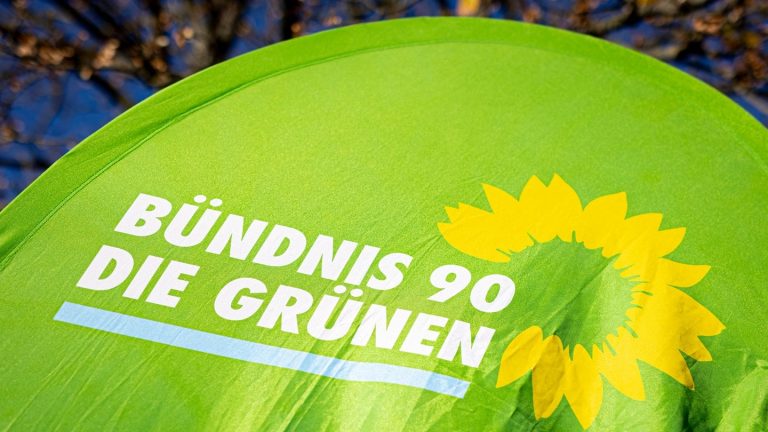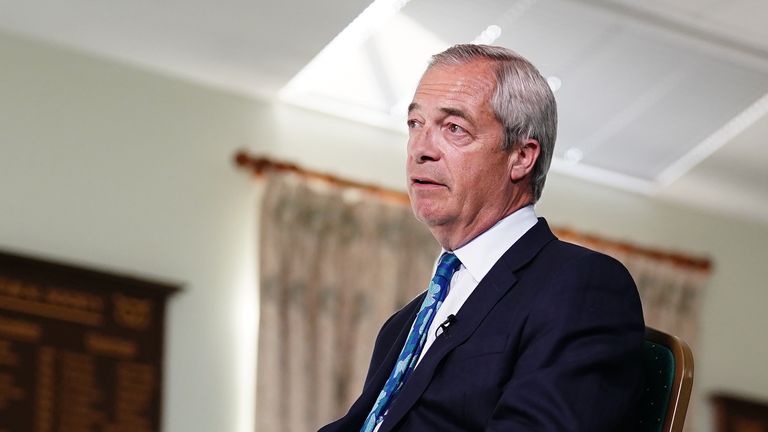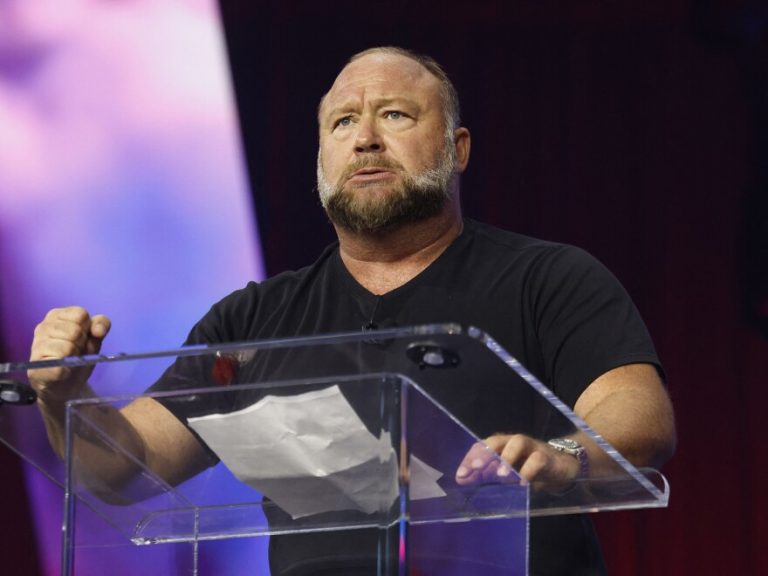1. Introduction to Die Linke
1. Introduction to Die Linke
Die Linke (The Left) is a prominent political party in Germany that positions itself as a democratic socialist and left-wing political force. Founded in 2007 as a merger of the Party of Democratic Socialism (PDS) and Labour and Social Justice – The Electoral Alternative (WASG), Die Linke is rooted in socialist traditions, advocating for social justice, workers’ rights, and anti-capitalist policies.
With its origins in the former German Democratic Republic (East Germany) and its later development in West Germany, Die Linke has become one of the major left-wing parties in Germany, holding seats in the Bundestag (Germany’s federal parliament) and state legislatures.
2. Leadership and Key Members
Die Linke is led by a group of co-chairs, reflecting its commitment to a more collective leadership model. As of 2025, the party is co-led by Janine Wissler and Bernd Riexinger.
- Janine Wissler: Wissler is one of the most prominent faces of Die Linke. Born in 1981 in Germany, Wissler joined Die Linke in her early twenties and rapidly ascended through the ranks. She has served in various leadership roles, becoming a co-chair of Die Linke in 2021. Wissler is known for her commitment to social justice and has advocated for wealth redistribution, workers’ rights, and environmental sustainability.
- Bernd Riexinger: Co-chair Bernd Riexinger has been a key member of Die Linke since its formation. A former trade unionist, Riexinger has consistently championed workers’ rights and the need for labor reforms. He has been particularly vocal about combating economic inequality and advocating for public ownership of essential services.
- Other Key Members:
- Dietmar Bartsch: Bartsch is another influential figure within the party, especially in the Bundestag. He has served as the parliamentary leader of Die Linke and is known for his positions on economic justice and social security.
- Klaus Ernst: A former leader of the PDS faction in the Bundestag, Ernst has been an important voice for Die Linke in terms of economic and energy policies, particularly advocating for the transition to renewable energy and nationalization of key industries.
- Sarah Wagenknecht: Though no longer an official leader of Die Linke, Sarah Wagenknecht has been a key figure in the party’s history. Known for her more populist and critical views on the European Union and migration, Wagenknecht’s presence within the party has been significant, though her controversial positions have led to tensions within the party.
3. Party Split and Internal Struggles
Die Linke has faced significant internal divisions and splits throughout its history, often due to differences in ideology, particularly on issues like migration, European Union policies, and capitalism.
- Ideological Tensions: One of the primary causes of the party’s internal struggles has been its balancing act between democratic socialism and more populist left-wing views. The more moderate wing of the party, represented by leaders like Janine Wissler and Bernd Riexinger, tends to support gradual, reformist policies aimed at achieving socialism through democratic means. On the other hand, figures like Sarah Wagenknecht have advocated for more radical and nationalist-left policies, especially concerning EU austerity measures and migration.
- Sarah Wagenknecht’s Departure: Wagenknecht, a high-profile member of the party known for her anti-immigration stance and skepticism toward the EU, often clashed with other leaders over the direction of Die Linke. Her calls for a more populist left-wing platform and criticisms of immigration policies led to a significant rift within the party. In 2021, she left the party’s leadership, marking a point of division within Die Linke that has yet to fully heal.
- Wagenknecht’s “Aufstehen” Movement: In 2018, Sarah Wagenknecht launched a left-wing populist movement called Aufstehen, which sought to unite disillusioned voters who felt left behind by traditional political parties. This movement included critics of both the EU and the current immigration policies of Die Linke. While Wagenknecht’s initiative gained significant media attention, it also deepened the split within Die Linke, as many members of the party viewed it as too radical.
4. Policies and Ideology
Die Linke’s policies are grounded in socialist and anti-capitalist values, with a strong focus on social welfare, workers’ rights, and wealth redistribution. Their platform can be broadly divided into the following key areas:
Social and Economic Justice
- Wealth Redistribution: Die Linke calls for progressive taxation, with the wealthy and corporations contributing more to funding public services. They support policies aimed at reducing economic inequality and expanding social security.
- Workers’ Rights: The party has its roots in trade unions and workers’ movements and advocates for stronger protections for employees. They support initiatives to increase the minimum wage, improve working conditions, and create more public-sector jobs.
- Public Services: Die Linke seeks to nationalize key sectors such as energy, transport, and healthcare. They believe these industries should be run for the benefit of the people, not for private profit. In line with this, they also advocate for free education and healthcare for all citizens.
Foreign Policy and European Union
- European Union Criticism: Die Linke is critical of the European Union, especially its handling of economic inequality and its imposition of austerity measures on member states. They argue that the EU often prioritizes the interests of large corporations and financial institutions over ordinary citizens. However, they do not advocate for Germany’s exit from the EU, but rather for a reformed EU that serves the needs of its citizens.
- Foreign Relations: Die Linke calls for a peaceful foreign policy and opposes military interventions in countries like Afghanistan and Syria. They advocate for international solidarity, with a focus on diplomacy and humanitarian aid over military conflict.
Environmental Sustainability
- Green Economy: Die Linke supports a green new deal for Germany, emphasizing the need to transition to a sustainable economy. They support renewable energy, the decarbonization of industry, and a just transition for workers in sectors affected by the shift to green energy.
Migration Policy
- Pro-Migration Stance: Die Linke generally supports an open and humane migration policy. They advocate for refugees’ rights, improved asylum procedures, and an end to deportations. The party is committed to integrating refugees into the German society through language courses, housing programs, and access to the labor market.
- Criticism of Border Policies: Die Linke opposes fortress Europe policies, which prioritize border security over the welfare of migrants. They believe that migration should be recognized as a human right, and they have called for EU-wide asylum procedures that ensure equal treatment across the continent.
5. Stance on Disability Rights and Accessibility
Die Linke has been a strong advocate for disability rights in Germany. Their policy on disabilities emphasizes equal access to education, work, and public services for individuals with disabilities. The party has consistently pushed for improved accessibility standards in public transportation, buildings, and online platforms.
Die Linke has also supported the rights of people with disabilities to live independently and receive support that allows them to participate fully in society. They argue that the government should invest more in disability services, including personal assistants, health care, and wheelchair accessibility.
6. Die Linke’s Role in German Politics
Though Die Linke has never been a ruling party, it plays a crucial role in shaping Germany’s political landscape, especially from the left. They are often seen as a progressive alternative to the more mainstream left-leaning parties, such as the Social Democratic Party (SPD).
- Coalition Politics: Die Linke is a member of various coalition governments at the state level in Germany, particularly in states like Berlin and Thuringia. However, they have often faced difficulties in forming federal coalitions due to ideological differences with parties like the SPD and the Greens.
- Impact on German Policy: Die Linke has been instrumental in pushing for more social welfare programs, labor protections, and climate action. Though often marginalized in the federal government, their policies have influenced broader debates on issues like wealth inequality and social justice.
7. Challenges and Future of Die Linke
Die Linke faces several challenges as it navigates a competitive and sometimes fragmented political landscape. The party’s internal divisions, particularly over issues like immigration, EU relations, and capitalism, have made it difficult for them to maintain a unified front.
Furthermore, the rise of other left-wing parties in Europe, such as France’s La France Insoumise and the Spanish Podemos, has placed additional pressure on Die Linke to adapt its policies to remain relevant.
Despite these challenges, Die Linke continues to attract support from left-wing activists, trade unions, and those who feel disenfranchised by mainstream politics.
8. Conclusion
Die Linke remains one of Germany’s most significant left-wing political forces, advocating for social justice, workers’ rights, and migration rights. Although the party has faced internal divisions and struggles, it continues to push for policies that prioritize the welfare of the people over corporate interests. As Germany’s political landscape evolves, Die Linke’s role in shaping the country’s future will be an essential one, particularly in areas like economic justice, environmental sustainability, and human rights.






